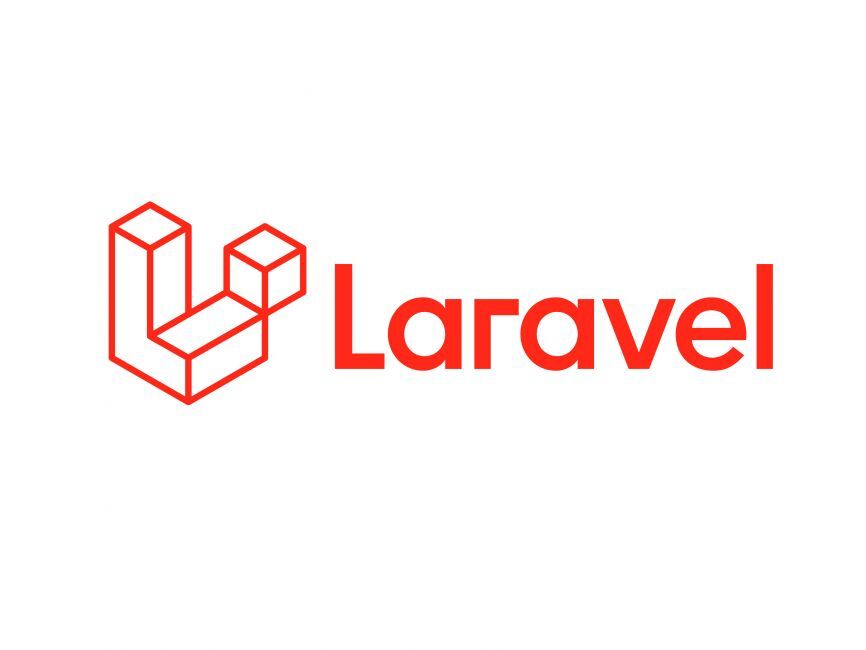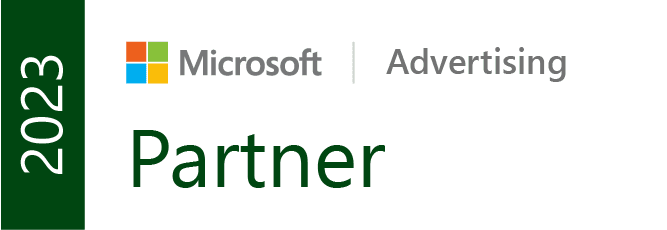We have all heard of Greta Thunberg, the young activist from Sweden, with a big voice on climate change. We are all aware of climate change and the impact it could have on the planet, but not everyone has heard of greenwashing or know what it means, or how it could affect your brand.
In this article we will cover what greenwashing is, how it can affect brands, who it has affected before, then lastly how to avoid it.
What is greenwashing?
Greenwashing is defined as, projecting, or presenting misleading information, about how products or services are more environmentally friendly than they actually are.
A common example of greenwashing is including buzzwords in product descriptions, like ‘eco’, ‘sustainable’ or ‘carbon neutral’ while the organisations responsible for these ‘green’ products, have done very little or nothing to reduce their carbon footprint.
Growing interest in sustainability
While that used to wash (no pun intended) with consumers, it’s now not the case. As a society, we are all more aware of the risk of climate change and the need to provide more sustainable services has started to change how we engage with brands.
Bing have recently launched a new section within their shopping platform, called the ‘Ethical Shopping hub’ which provides users with filter options to search for eco-friendly, upcycled, vegan or fair trade items, something shoppers are now demanding from brands.
Interest in climate change has never been higher, reaching fever pitch with the 26th Conference of the Parties (COP) summit taking place in Glasgow in November 2021.
As you can see, interest in COP26 dwarves the trends seen for the previous three summits, and the 22 summits before that.
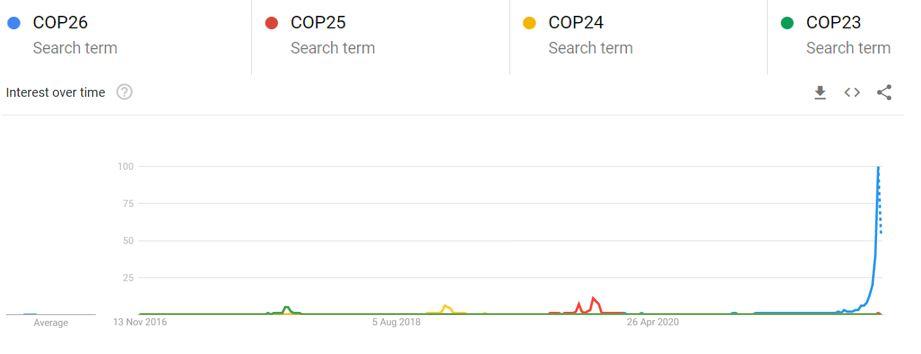
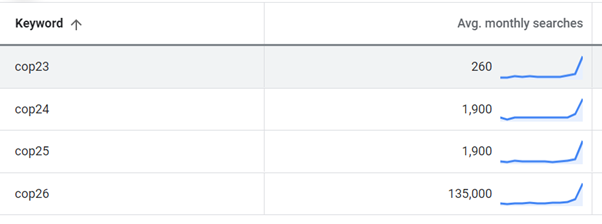
The UK population has also been searching for ‘greenwashing’ more and more, especially in the last month! No surprises there with climate issues firmly on the radar. So don’t be naïve to how informed consumers are or could be.

Therefore, with this increased interest, companies should definitely be aware of what greenwashing is and the implications to their brand if they are deemed to be doing it.
How greenwashing can affect your marketing and your brand
There are a couple of keys ways in which Greenwashing can affect your brand.
- You might see your ads being blocked across the Google network
- Greenwashing can harm a brands image
Google has recently announced an update to their ads and monetization policies stating,
“Google will prohibit ads for, content that contradicts well-established scientific consensus around the existence and causes of climate change, evaluating content that states a false claim as a fact”
Multiple studies such as ‘The Extended Consequence of Greenwashing’ by Sutikin & Aji, report the negative effect of greenwashing on consumers’ views toward a brand.
Gen Z, a generation growing up through a pandemic and now a climate crisis, are more likely to purchase from sustainable brands. A First Insight report found that the vast majority of Generation Z & Millennial shoppers prefer to buy from sustainable brands and are willing to spend 10 percent more on sustainable products.
Millennials & Gen Z purchasing decisions are also based upon value and principles of brands, more so than the generations before them, with 70% of Millennials & 72% of Gen Z making purchasing decisions based upon value and principles.
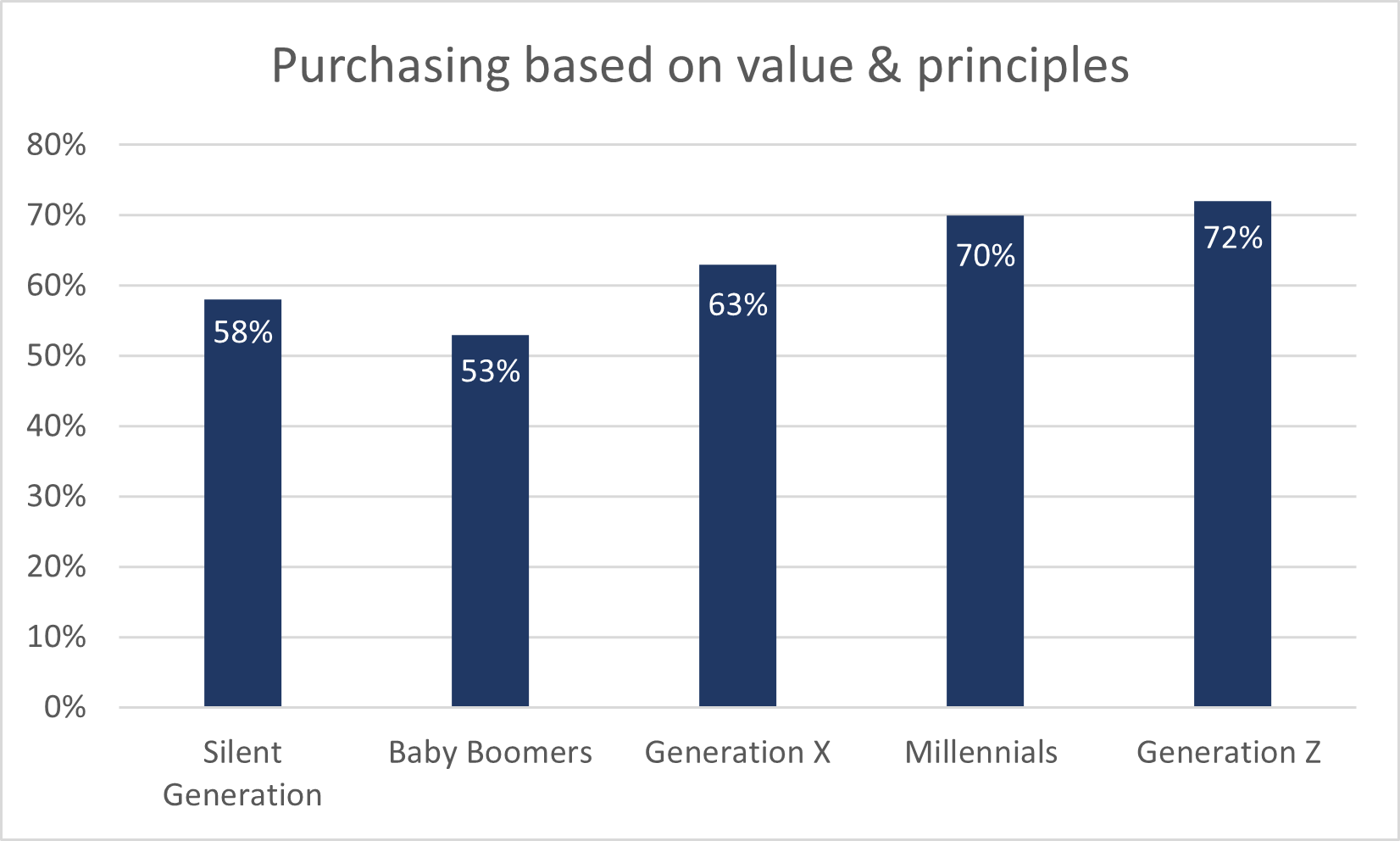
Companies accused of greenwashing
As you can imagine there are a number of corporations that have had their sustainability questioned. With major corporations coming under fire for their ‘eco’ products or ‘green’ strategies.
BP
Having rebranded as ‘Beyond Petroleum’ almost 20 years ago, BP came under fire due to numerous issues, most significantly the environmental disasters (not to mention PR disasters), such as the huge oil spill in Alaska in 2006 and then the explosion on the Deepwater Horizon oil rig in 2010, which is the largest marine oil spill in history.
In 2019 a complaint was lodged against BP, for misleading the public by focusing ad campaigns on low carbon products, all the while, 96% of BP’s annual spend was still on oil and gas.
McDonalds
In 2019 McDonalds made the jump to paper straws, this was a move away from the recyclable plastic straws historically used. The issue? The “eco-friendly” branded paper straws were not yet recyclable! This coupled with the fact the McDonalds cups also have a plastic lining inside, making them harder to recycle, really didn’t position the change as being eco-friendly.
Volkswagen
Society seems to be onboard with electric motoring, as one of the most sustainable ways to travel privately. The opposite end of the electric vehicle spectrum is the diesel engine, an engine type that the UK government plans to stop production on by 2030.
Back in 2015 VW were promoting their diesel cars, claiming the ‘low emissions’ on their vehicles. It turned out almost half a million VW diesel cars were fitted with a piece of software that could detect when they were being tested for emissions, then the software dubbed the ‘defeat device’ would kick into gear (no pun intended) and change the performance to improve results.
Ryanair
The travel industry has been one of the industries hit hardest by the covid-19 pandemic, but some airlines weren’t helping themselves prior to March 2020.
Ryanair seemed to label themselves ‘Europe’s lowest fares & emissions airline’ which was a bold claim. So bold, because it was deemed untrue by the Advertising Standards agency, who had the marketing material banned in early 2020.
How to avoid greenwashing
Be honest
A fairly simple claim, you would think. This should be the number one priority for any brand. Just be honest, open, & transparent with your audience. So many brands are still in the infancy of the goal to be more sustainable, it’s better your audience is aware of this, than to claim you are much further down the road than you actually are.
Of course, highlight what you have done up to now, but admit you still have further to go, if that is the case, whether that’s on your own website or within marketing activity such as paid ads.
Including eye catching claims may increase your CTR in the short term, but could cause detrimental long-term issues, when your ads are being blocked. Don’t fall foul of regulations across multiple platforms.
Don’t be vague
As mentioned above, vague buzzwords no longer hold the weight they once did. Phrases like ‘100% natural’ doesn’t automatically make a sustainable product, palm oil is natural, yet is an ingredient that has led to huge amounts of deforestation as well as vast amounts of CO2 emissions.
So be more specific in in your green claims, make sure you can provide clear answers to the Governments Green claims code for shoppers. As a recent study by the Government found 40% of firms green claims could be misleading.
Have proof
If you are being honest and specific, then this should be simple to prove that you are practising what you preach. Back up your claims with evidence, make the information accessible.
In 2019 Innocent Smoothies released a 42-page document highlighting their sustainability claims and their journey to become more efficient.
Use legitimate accreditations
Accreditations are used in every industry and help solidify a brand’s reputation and green accreditations should be no different. They can show your brand is taking steps to be more sustainable. Accreditations such as Certified B corporation or Investors in the environment are identifiers for your audience to show your brand is doing what it says.
Key takeaways
We can all do our bit to protect our planet in our day-to-day lives, but as a company, you need to be aware of greenwashing and make sure you don’t fall foul of it in your communications and business practices.
Look to:
- Gain accreditations
- Be specific & honest in your claims
- Back every claim up with workable data

